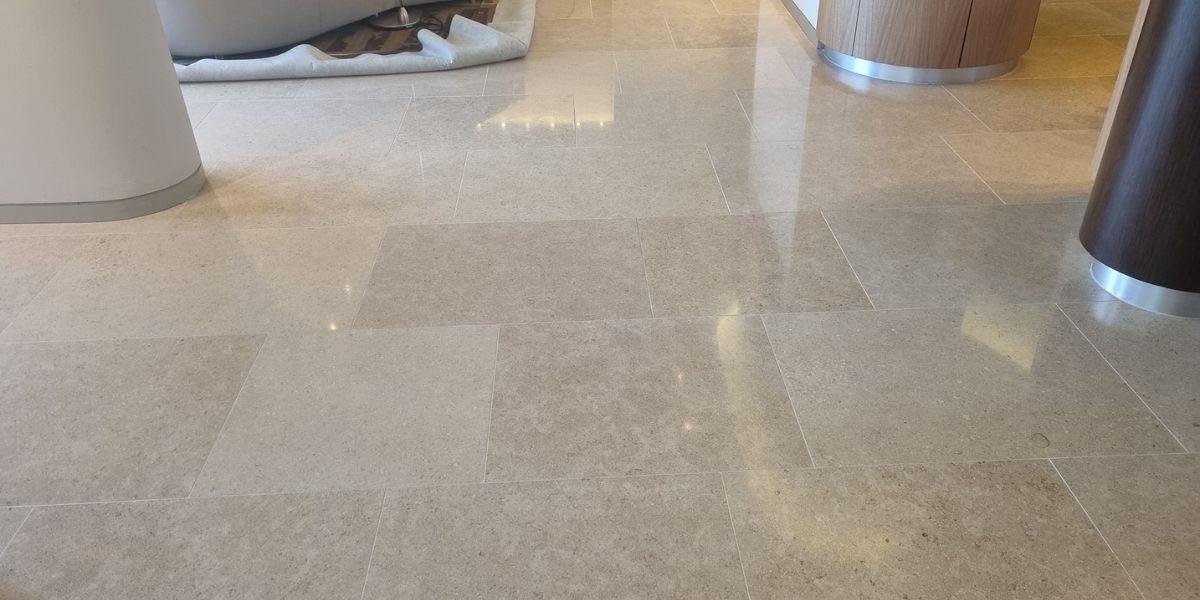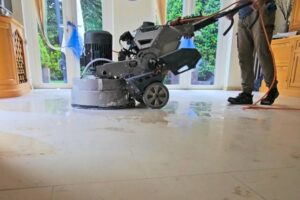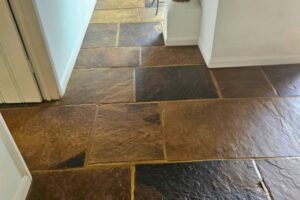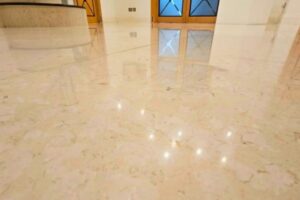How to Clean a Limestone Floor Safely
Learn how to clean and care for your limestone floor safely. Find out which products to use, what to avoid, and when to reseal. Expert guidance from StoneCura.
How to Clean and Maintain Your Limestone Floor Without Damaging It
Why Limestone Floors and Surfaces Need Special Care
Limestone is a porous, calcium-based stone that requires gentle cleaning. It’s sensitive to acids, harsh chemicals, and abrasive tools. Everyday spills, supermarket cleaners, or even the wrong mop can cause:
- Etching (dull patches caused by acid)
- Staining (from liquids soaking in)
- Dullness and grime build-up

What to Use on Limestone Surfaces and What to Avoid
To keep your limestone looking its best, always use the right products and techniques.
Recommended Products:
- PH-neutral stone cleaner
- Microfibre mop or soft cloths
- Warm water (not hot)
Avoid:
- Vinegar, lemon juice, bleach, or acidic cleaners
- Steam cleaners, which can force water into the stone
- Mop-and-shine or wax-based products
- Abrasive pads or scourers
Step-by-Step: How to Clean Your Limestone Floor Safely
- Dry sweep or vacuum: Remove loose dust and grit first, as it acts like sandpaper on the surface.
- Mop with PH-neutral cleaner: Dilute the cleaner according to the label and mop in sections. Do not flood the floor – a damp mop is enough.
- Dry the floor: Use a clean, dry mop or towel to remove leftover moisture. This helps prevent streaks and mineral marks.
Routine Maintenance Tips
Keeping your limestone floor clean doesn’t need to be complicated. Follow these simple habits to maintain its natural beauty:
Daily: Dry sweep or vacuum high-traffic areas
Weekly: Mop with a PH-neutral cleaner
As needed: Spot clean spills immediately with warm water and a soft cloth
Annually: Have the floor professionally deep cleaned, checked, and resealed
When to Reseal Your Limestone Floor
If water no longer beads on the surface or you notice stains or dull areas, it’s likely time to reseal. Resealing protects the stone against stains and daily wear.
At StoneCura, we use breathable, high-quality impregnating sealers tailored to your stone type and how your floor is used. Resealing keeps your limestone floor protected, easier to clean, and looking its best.
For professional limestone floor cleaning and restoration services, contact the StoneCura team for expert advice.
Call us now on 01628 520354 or 07737 137022 or message us
Frequently Asked Questions
Can I use a steam mop on limestone?
How do I remove marks or etching on my limestone floor?
How often should I reseal my limestone floor?
Can I polish limestone myself?
Get Professional Limestone Cleaning Help
If your limestone floor looks dull, stained, or uneven, or if you’re unsure whether your current cleaning products are suitable, get in touch. We’re happy to offer advice, share our stone care guide, or provide a quote for deep cleaning and resealing.
Contact StoneCura today for expert limestone floor cleaning and restoration. We are trusted by homeowners and businesses across Buckinghamshire, Berkshire, Oxfordshire and surrounding areas.
Call us now on 01628 520354 or 07737 137022 or message us



